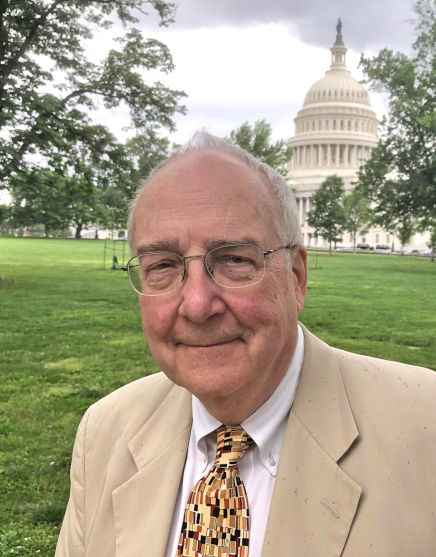Fall 2020
Alumni spotlight: Eric Witzig
Transformational gift will change student lives

Eric Witzig (M.S.’95/GPA) walked the streets of Washington, D.C., for more than 20 years as both a uniformed police officer and homicide detective. Some of his major cases included the 1981 attempted assassination of President Ronald Reagan by John Hinckley Jr. and the 1982 crash of Air Florida’s Flight 90 into the frozen Potomac River. He continued his law enforcement career at the FBI in 1989, joining the bureau’s training division, where he worked in the Investigative Support Unit as a crime analyst and major case specialist. He was also an integral part of the bureau’s Violent Criminal Apprehension Program.
While at the FBI, Witzig enrolled in VCU’s graduate criminal justice program, then part of the College of Humanities and Sciences, taking his classes through the FBI Academy. Before his death in February, Witzig provided a gift to the Wilder School to fully endow an undergraduate scholarship in criminal justice. His estate is providing an additional substantial gift to the scholarship fund. The Eric W. Witzig Scholarship in Criminal Justice will give preference to first-generation undergraduate students and students with demonstrated financial need. The scholarship will be awarded for the first time in the fall of 2020.
“This legacy gift from Eric Witzig will live on in the multiple generations of students it will help support,” said Dean Susan Gooden. “A gift of this magnitude is truly transformational for the Criminal Justice program at the Wilder School.”
When making the gift, Witzig said part of the inspiration came from his father, a first-generation student who earned a bachelor’s, a master’s and a doctorate in engineering. “My grandfather stopped going to school after eighth grade, so my dad was the first in our family to go to college,” Witzig told VCU development officials. “For VCU first-generation students just starting out like this, it’s a lot to handle.” Witzig also made a generous bequest to the Wilder School from his estate. That gift will also be used to support the criminal justice department within the Wilder School.
“We know Eric Witzig was passionate about training the next generation of criminal justice professionals, and we will be careful stewards of his generosity,” Gooden said.
Witzig retired from the FBI after 24 years as a unit chief and supervisory intelligence analyst assigned to a special criminal investigation project. During his tenure, Witzig solved the murder of 81-year-old Fannie Whitney Byers of Carl, Georgia, through a records review of the ViCAP database he helped create. Although Georgia officials had arrested and charged two people for the murder, Witzig successfully linked the Byers homicide to Texas “Railroad Killer” Angel Maturino Resendiz, a serial killer believed responsible for 23 murders.
Witzig’s work continued during his retirement, as the vice chairman and founding director of the nonprofit Murder Accountability Project (MAP), which tracks unsolved homicides across the country.
“Eric Witzig was a visionary within America’s law enforcement community. He validated through his remarkable career the importance of the creation of a national database for unsolved homicides and other major crimes,” said MAP Chairman Thomas K. Hargrove. “Even while battling cancer, Eric closely monitored the investigations into 51 unsolved strangulations of women in Chicago that he, and we, believe were the work of serial killers. Eric will be sorely missed.”
Fall 2020 / In this issue
- The Surprising Factor in Immigrant Success
- Faculty news and achievements
- Dual Pandemics: Being part of the solution
- Governor Wilder on racial reconciliation
- Alumni Spotlight: VDEM's Curtis Brown
- Leaving a legacy
- Alumnae helping cancer patients
- Student awards
- Alumni Lunch and Learn Series
- Letter from the dean's office
- Sharing expertise
- Selected CNN 2020 presidential election poll
- Conversations with Gov. Wilder